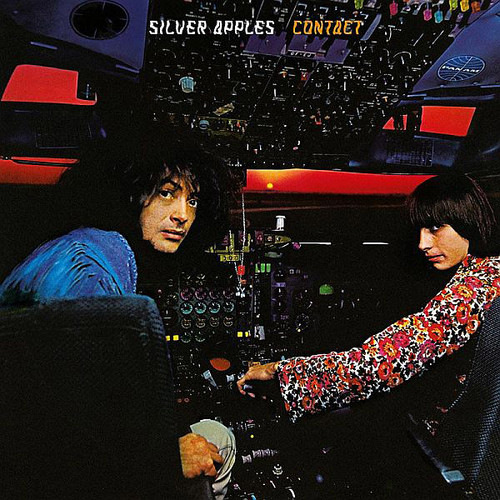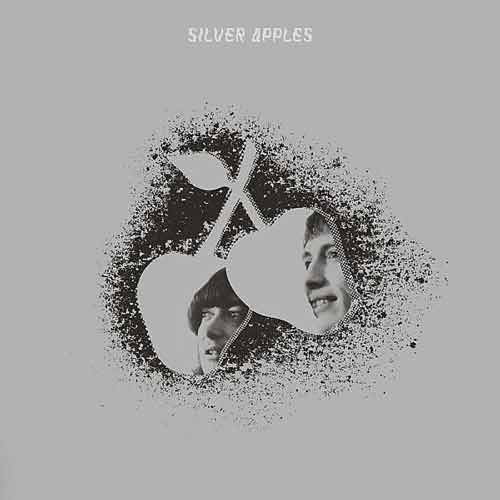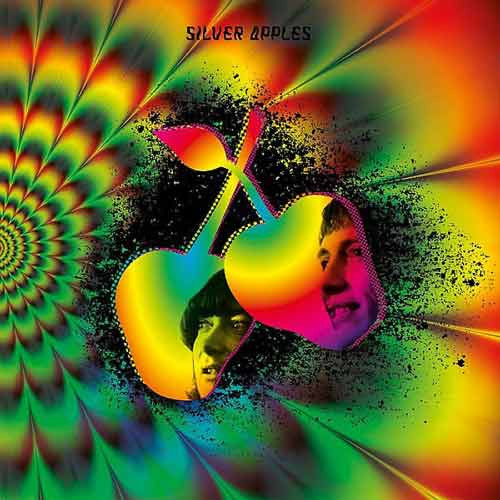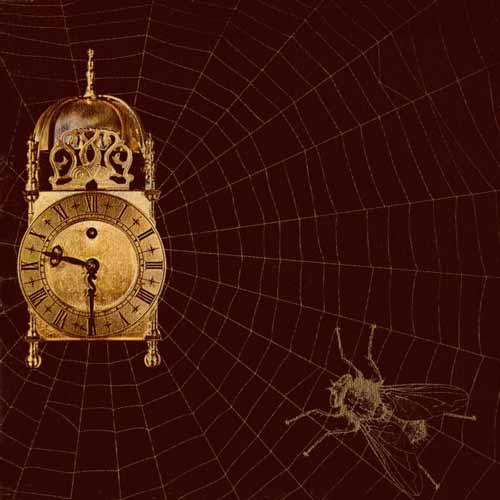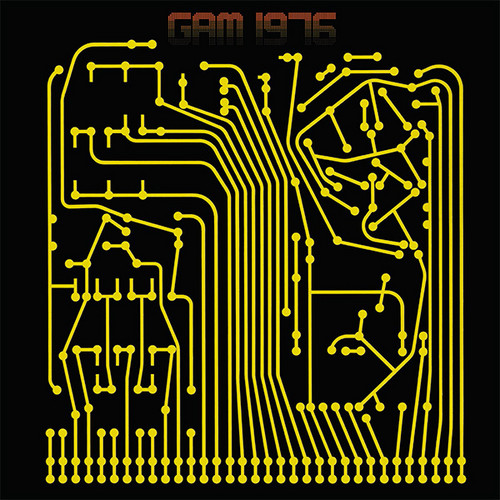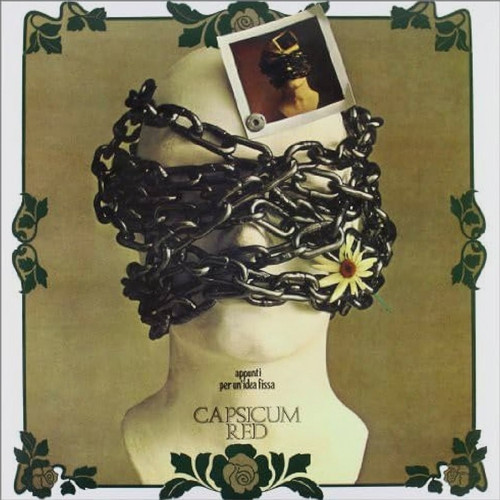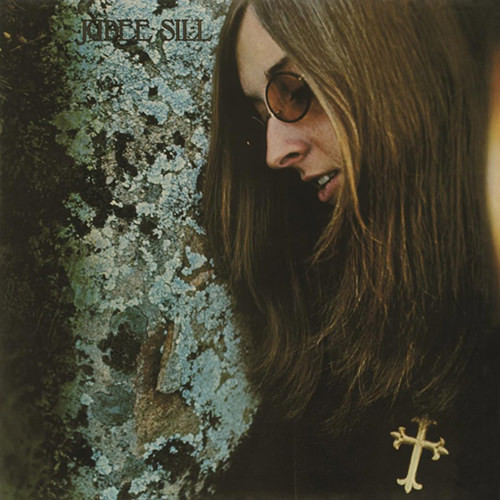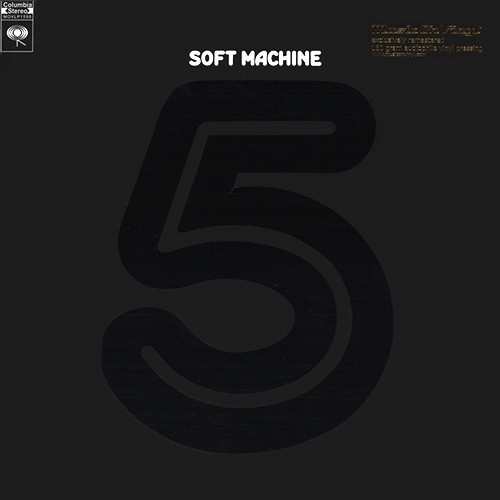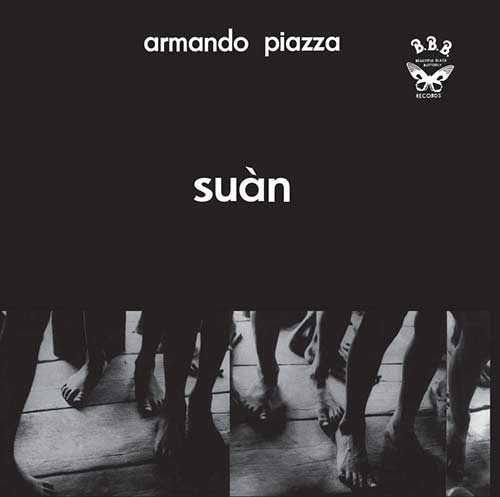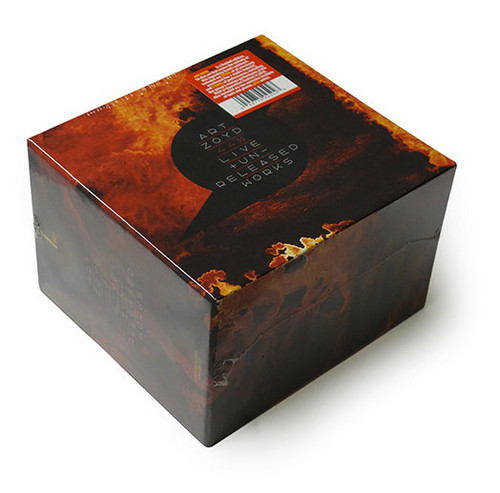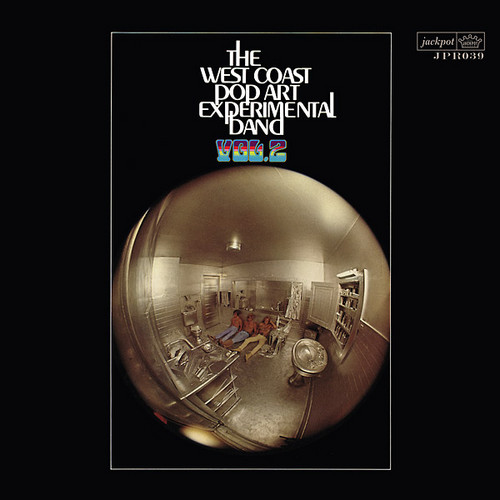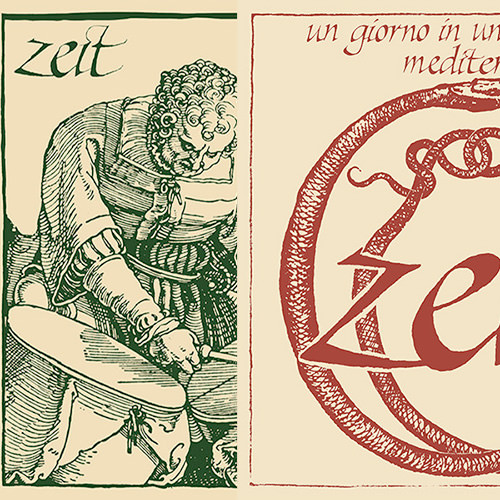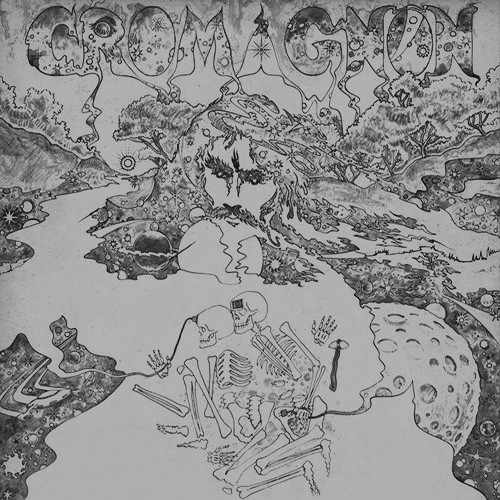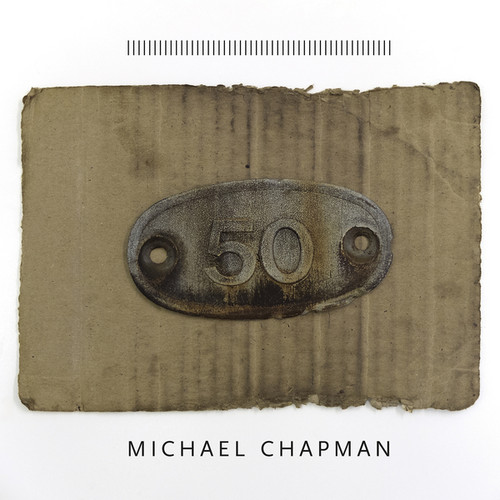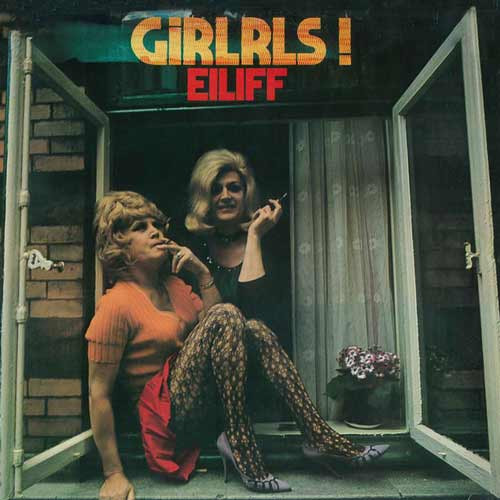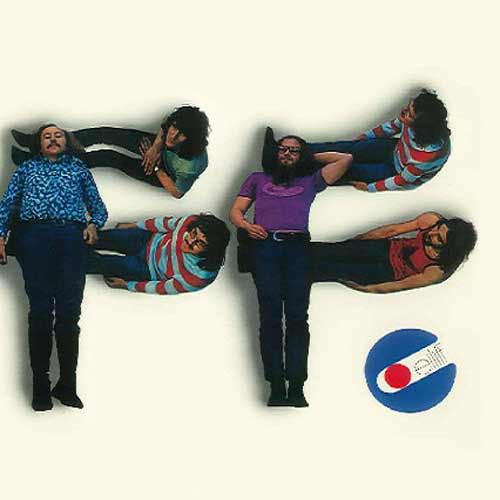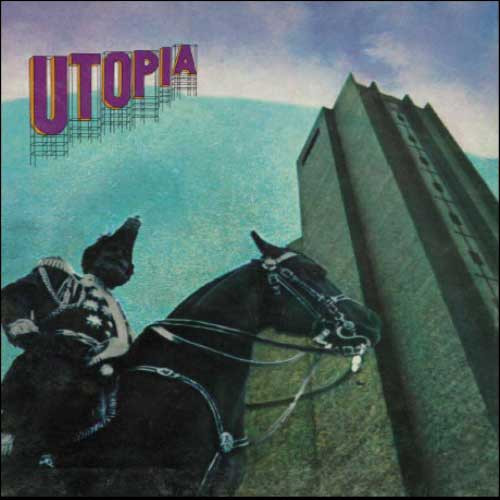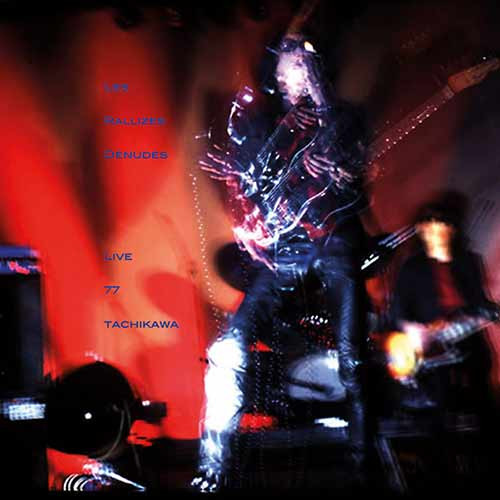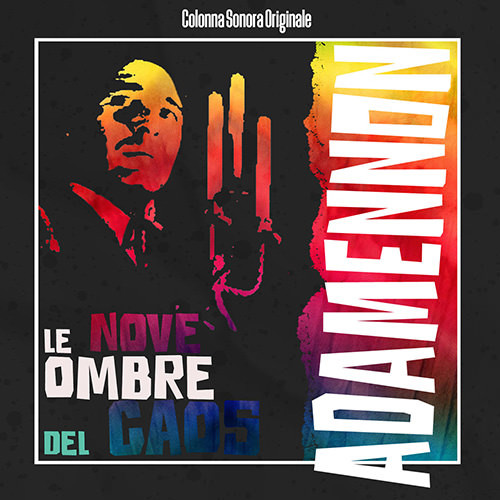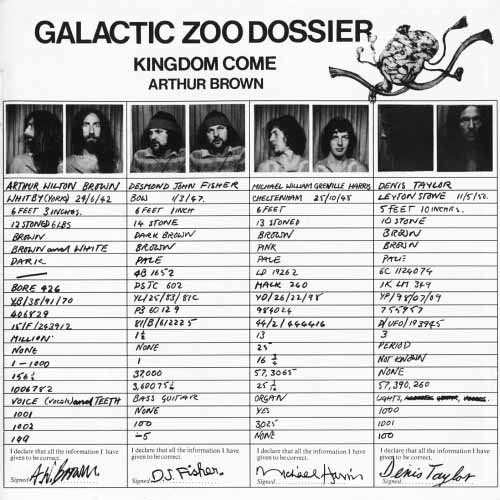Psych /
Contact (Color Sleeve)
Black vinyl version. Color sleeve. Numbered edition of 2000 copies. Rotorelief present a reissue of Silver Apples' second album Contact, originally released in 1969. Available in four versions: A black vinyl version with a color sleeve in a numbered edition of 2000 (ROTOR 056C-LP); a clear vinyl version with a color sleeve in a numbered edition of 1000 (ROTOR 056C-CLR); a black vinyl version with a silver gatefold sleeve in a numbered edition of 2000 (ROTOR 056S-LP); and a silver and black vinyl…
Silver Apples (Silver Gatefold Sleeve)
Silver and black vinyl version. Silver gatefold sleeve. Numbered edition of 1000 copies. Rotorelief present a reissue of Silver Apples' self-titled debut, originally released in 1968. Available in four versions: A black vinyl version with a color sleeve in a numbered edition of 2000 (ROTOR 055C-LP); a clear vinyl version with a color sleeve in a numbered edition of 1000 (ROTOR 055C-CLR); a black vinyl version with a silver gatefold sleeve in a numbered edition of 2000 (ROTOR 055S-LP); and …
Silver Apples (Color Sleeve)
Black vinyl version. Color sleeve. Numbered edition of 2000 copies. Rotorelief present a reissue of Silver Apples' self-titled debut, originally released in 1968. Available in four versions: A black vinyl version with a color sleeve in a numbered edition of 2000 (ROTOR 055C-LP); a clear vinyl version with a color sleeve in a numbered edition of 1000 (ROTOR 055C-CLR); a black vinyl version with a silver gatefold sleeve in a numbered edition of 2000 (ROTOR 055S-LP); and a silver and black vi…
9:30 FLY
9.30 Fly formed in Cheltenham, UK, in 1971 with Michael Wainwright (vocals), Barbara Wainwright (vocals, piano), Lyn Oakey (guitar), Gary Charman (bass) and Mike Clark (Drums). They soon gathered local popularity, even opening for The Velvet Underground at Malver Winter Gardens in 1972. That same year they released their eponymous LP on Ember, offering in it a fantastic selection of original tunes in the finest UK prog rock style, mixing in some folkie melodies and keeping a psychedelic air all …
1976
After the big success of our reissue of Günter Schickert’s amazing Samtvogel LP we present another of his projects, GAM - on which he joined Axel Struck and Michael Leske. A powerful trio of mindexpanding krautrock sounds formed in 1973, they recorded their first sessions in 1976, improvising directly to tape in Schickert’s basement - but these weren’t released until 1986, originally in cassette format - reissued some years later on CD. The sound of GAM 1976 differs a bit to that of Samtvogel. O…
Appunti Per Un'Idea Fissa
** 2024 Repress, Yellow Vinyl **The Capsicum Red were a group of Italian progressive rock formed in 1970. The name Capsicum Red was chosen by the producer Pino Massara when he discovered Canzian, singer and guitarist of the Prototypes, and took him to the new label Bla Bla in 1970. To attract the interest of the press, the Capsicum Red were presented as a foreign group, and this caused some success for the first two 45 rpm. The group disbanded in 1973, when Red Canzian went for a short time in O…
Judee Sill
Judee Sill's debut album (as well as the debut of the Asylum label) heralded a major new talent in the airy, contemporary folk world of the early '70s. The album employed the production skills of Sill's ex-husband Bob Harris, as well as ex-Turtle, ex-Leaves Jim Pons, and Graham Nash (on the album's sole single, 'Jesus Was s Crossmaker'). Judee Sill featured all original compositions, many of which relied on Sill's own brand of cosmological Christian imagery to make their point. By turns spare an…
Fifth
While the instrumental Fourth had forayed deep into jazz-rock territory, Fifth found Soft Machine working almost completely in the jazz idiom. As Soft Machine moved further away from rock on Third [MOVLP183] and Fourth [MOVLP1602], drummer/vocalist Robert Wyatt's dissatisfaction with the band's direction grew and, by the time sessions started for Fifth in late 1971, he had left permanently to form Matching Mole. Wyatt's replacement Phil Howard's propulsive rhythms make a vital contribution to me…
Suan
Acid-psychedelic ballads, with lots of acoustic guitar, bursts of fuzz guitar and excellent use of electric instruments. The fuzz bass on “The House on the Hill” will blow your mind and… speakers away. It is considered to be one of the best and rarest European psychedelic folk rock albums. Original Mint copies go nowadays for 1000+Euro. English lyrics. Armando Piazza, singer-songwriter from Naples was joined by renowned US guitarist Shawn Phillips on bass, acoustic and electric guitar. "Suan" w…
44½ : Live + Unreleased Works
Art Zoyd - 44 1/2 : Live and Unreleased Works 12 x CDs + 2 x DVDs box set with book. 'Art Zoyd is a quartet, but their instrumental arsenal produces the sound of a mighty orchestra.' – The New York Times Originally founded as a psychedelic / progressive rock band in France in 1969, with the arrival of soon-to-be co-leaders Gerard Hourbette and Thierry Zaboitzeff in 1971 and then with the departure of the band's founder, the group radically changed direction. By 1975 they were no longer a ‘rock'…
Part Two
Released in 1967 on Reprise Records as a follow up to Part One, Vol. 2 takes the band into more ambitious territory. Reaching out to more psychedelic territory than the debut LP, Vol. 2 maintains their unique pop sound mixed with ominous fuzz guitar, jumping from graceful folk-rock to wailing guitar freak-outs, to multilayered avant-garde compositions at a moment's notice. First time reissued in mono, from the original master tapes.
Un Giorno in una Piazza + Il Cerchio degli Antichi
Special bundle. In the late 70’s the Italian music scene recorded a renewed interest in a sound research involved to a stimulating fusion of popular elements, jazz improvisation and suggestions of the middle-oriental classical heritage. Starting from the experience of Aktuala the idea of a common "Mediterranean air", that could compare and harmonize rhythms and timbres of various regions, enlivened a large number of musicians. In this context, it also placed the short history of Zeit and of his …
Orgasm (black & silver ed.)
An absolute psychedelic tribal UFO and proto-industrial-noise in the story of music. A pioneer touch of Throbbing Gristle, SPK, Whitehouse, Test Department mixed with something full stoned and tribal ... ahead of its time in the 60's !!! This epic album is presented for the first time remastered with the same real rough sound and same feeling seeked at the time. And more volume added. this 1969 album has long been hailed as an underground classic. Included in Spin's 2013 list "The Top 100 Alter…
50
The revered, Yorkshire-based journeyman celebrates 50 years on the road with this badger rough and satisfyingly bittersweet collection. “After five decades of recording and touring, veteran British songwriter and guitar sage Michael Chapman has finally made what he calls his “American record,” and the aptly titled 50 now stands as his late career masterwork, a moving legacy statement by a legend. Backed by a collaborative group of friends and acolytes—Steve Gunn (who also produced), Nathan Bowle…
Girlrls!
Also for the first time on vinyl Girlrl, second album of Eiliff, is also a considerable album. It was recorded in famous Hamburg studio Windrose and was similar to the first album. Arguably their music was marginally more loud and direct, thus bringing their music marginally closer to rock. Intense chopping piano and organ, along with excellent drums and firm bass guitar providing a structure for a wealth of superb guitar from virtuoso Houschäng Nejadepour, and lots of smooth 'Mother styled' ele…
Eiliff
For the first time on vinyl Eiliffs eponymous album is a true classic for all lovers of early German rock music. Eiliff were formed in Cologne in the late sixties. Their powerful tour-de-force of complex progressive rock/ jazz-rock fusion can draw comparisons to King Crimson, Soft Machine, Van Der Graaf Generator, or, with regard to German Bands, Nine Days Wonder, Alcatraz oder later groups such as Thirsty Moon. Eiliff had a unique style based on their considerable individual talents. Their fir…
Utopia 1972
Recorded at the same time (July 1972) at the same studio (Bavaria Studios, Munich) as Amon Düül II`s well known and of their best efforts 'Wolf City', Utopia was a common project by Amon Düül II producer and musician Olaf Kübler (saxophone, moog) and Düül bass player Lothar Meid. Using the synergy of the parallel sessions with the Wolf City recordings, Olaf Kübler appreciated Düüls singer Renate Knaup-Krötenschwanz as singer of 2 of the album tracks and Düül heads Weinzierl and Karrer on guitar …
Live 77 Tachikawa
Mono-Tone Records present a reissue of Les Rallizes Dénudés's historic performance from 1977 in Tachikawa. This double LP has everything Les Rallizes Dénudés are known for - ear piercing feedback, languid guitar strumming, wild reverberated solos, lurid volume, blasé vocals, and unbelievable intensity, combined for a total sensory assault. Revolutionary and psychedelic, the unlikely meeting of The Velvet Underground and the Japanese Red Army, Les Rallizes Dénudés are among the earliest and most …
Le Nove Ombre del Caos
The new solo record from Adamennon expands the paths of his previous MMXII, bringing the ideas and influences of Goblin, Frizzi and Rizzati to a whole new level. Le Nove Ombre del Caos is a (never shot) horror movie which Adamennon wrote the soundtrack to. The atmosphere is drenched in insanity, terror and a malevolent black veil of craziness.The music is heavy, a doom for the doomed, and it gives new lymph to one of the musical genres who made italian composers famous around the world. Think of…
Galactic Zoo Dossier
Swordfish proudly continues its reissue programme of vintage Arthur Brown recordings with Kingdom Come's classic 1971 debut. A stunning fusion featuring elements of psychedelia, prog and electronics. Whilst not a major commercial success at the time in terms of pioneering spirit it has become something of a landmark. Now some 45 years later the driving forces behind it are far clearer-a remarkable visionary work full of genuine progressive portent.Officially licenced, fully remastered and presen…
